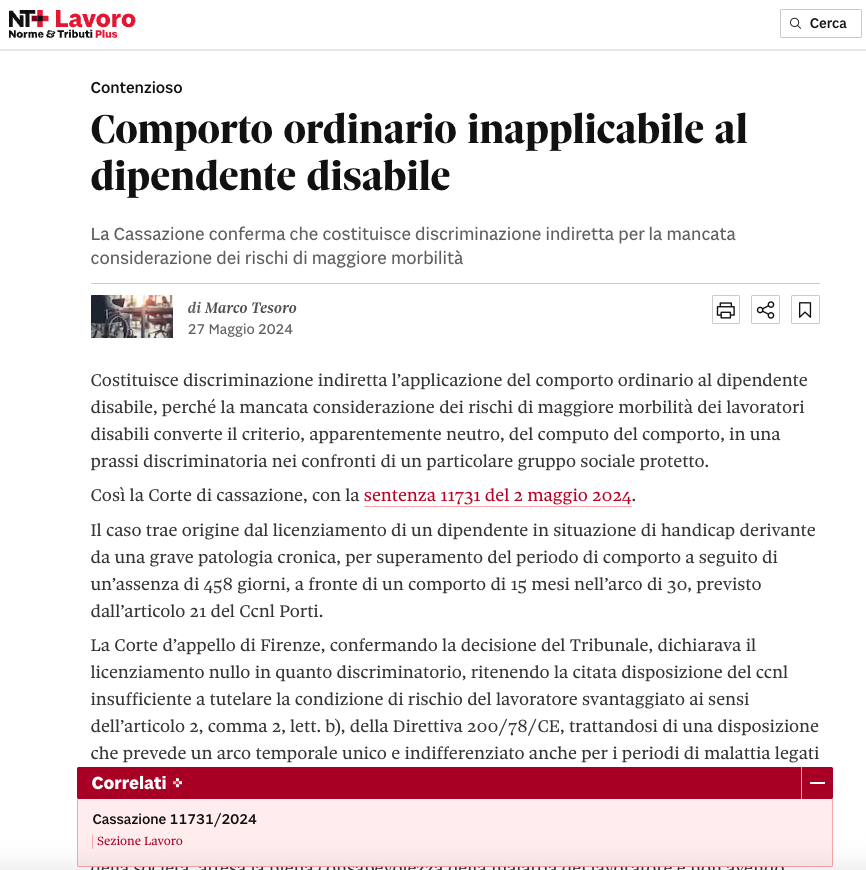Related Posts
Gruppo 24Ore17 April 2024
Reinstatement in case of violation of the repêchage duty
Pubblicato su: Il Sole24Ore - Nt Lavoro - 17/04/2024 Leggi qui
Gruppo 24Ore10 April 2024
Limited burden of proof for the injured employee
Pubblicato su: Il Sole24Ore – Nt Lavoro – 10 aprile 2024 Leggi qui


